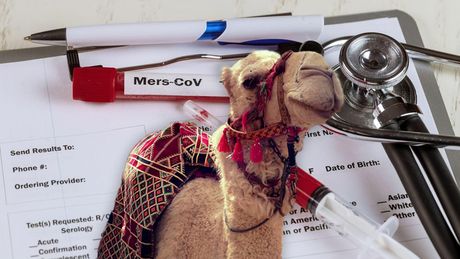Three common symptoms of camel flu that anyone returning from World Cup should pay attention to

The UK's Health and Safety Executive has warned doctors to be alert to the possibility of fans returning from the World Cup showing signs of camel flu.
This is a disease from the coronavirus family, and Dr. Slavica Maris, epidemiology specialist and head of the Unit for Infectious Diseases at the City Institute of Public Health in Belgrade, explained for Telegraf.rs what the symptoms are that can indicate this disease. Three are common - fever, cough and shortness of breath.
The Middle East Respiratory Syndrome (MERS) is a viral respiratory disease caused by the Middle East Respiratory Syndrome coronavirus (MERS - CoV), which was first identified in Saudi Arabia in 2012.
Dr. Slavica Maris told Telegraf.rs that coronaviruses are a large family of viruses that can cause diseases ranging from the common cold to severe acute respiratory syndrome (SARS) and Covid-19.
"Common symptoms of MERS are fever, cough and shortness of breath. Pneumonia is common, but does not occur in all patients. Gastrointestinal symptoms, including diarrhea, have also been reported in MERS patients. Mortality in registered MERS cases is 35 percent, while the actual mortality rate from this disease is most likely significantly lower because only patients with a severe clinical picture and those who undergo laboratory tests are registered," the doctor explains for Telegraf.rs.
MERS is a zoonosis, which means it is transmitted from animals to humans, human-to-human transmission is possible but sporadic.
"MERS-CoV has been identified and associated with human infection in several countries in the Middle East, Africa, and South Asia. Available data suggest that the virus is likely to be transmitted directly and indirectly through contaminated objects, and possibly by droplet transmission. Human-to-human transmission is possible and sporadic, and occurs in close contact with the patient as well as while providing health care - in members of the same family or household, health workers and patients," says our interlocutor, adding that the symptoms of MERS most often appear 5 or 6 days after contact, while incubation can last 2-14 days:
"The clinical manifestations of MERS-CoV range from asymptomatic, i.e. the infected person has no symptoms of the disease, mild respiratory disease to severe acute respiratory syndrome, which can have a fatal outcome. In severe forms of the disease, mechanical ventilation or support in intensive care units may be necessary. The elderly, people with weakened immunity and those with chronic diseases such as kidney disease, cancer, chronic lung disease, hypertension, cardiovascular disease and diabetes, have an increased risk of suffering from a severe form of the disease."
Therapy, Dr. Maris says, is symptomatic.
"When it comes to prevention, precautionary measures include regular hygiene measures during every visit to a farm, market or other location where camels and other animals are present. Washing hands before and after handling animals, as well as avoiding contact with sick animals. Eating raw or undercooked animal products, including milk and meat, carries a high risk of infection," the doctor noted in her statement for Telegraf.rs.
Five cases of MERS have been reported in the UK to date, with the last known occurrence in August 2018.
Routine guidance was issued by the UK's Health Safety agency last month, and no new cases have yet been reported.
Since the disease was first registered in 2012, 2,600 cases have been reported worldwide, mostly in the Arabian Peninsula, the WHO said. More than a third of those infected died as a result of the disease, and there have been two cases in Qatar.
Video: Torlak Institute confirms the first case of AH1 flu: Rapid spread is expected, and here is which type will dominate
(Telegraf.rs)
Video: Turubatović: Posle nestručnog skidanja krpelja veća mogućnost zaražavanja
Telegraf.rs zadržava sva prava nad sadržajem. Za preuzimanje sadržaja pogledajte uputstva na stranici Uslovi korišćenja.

